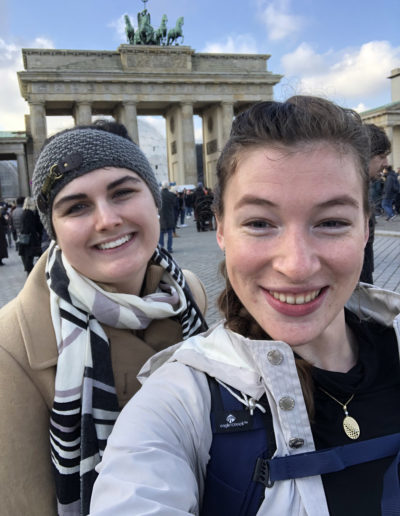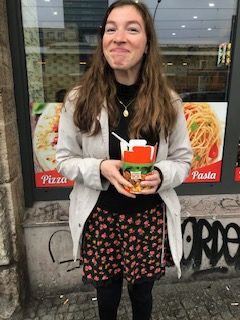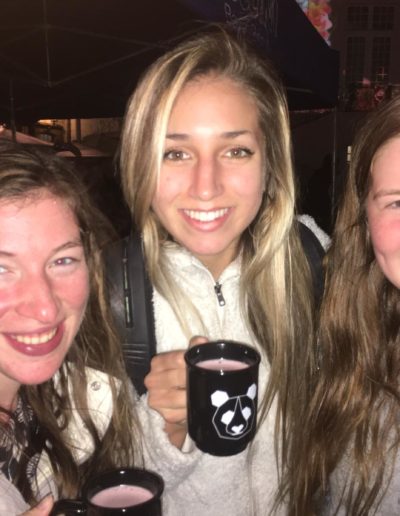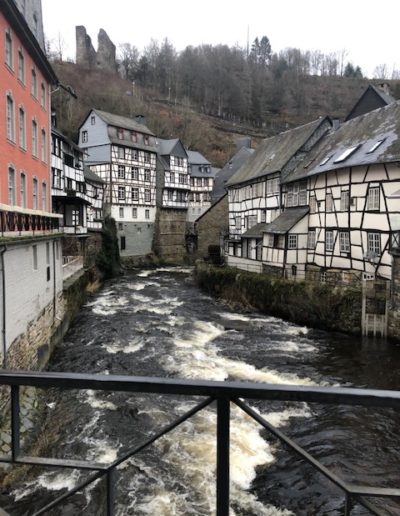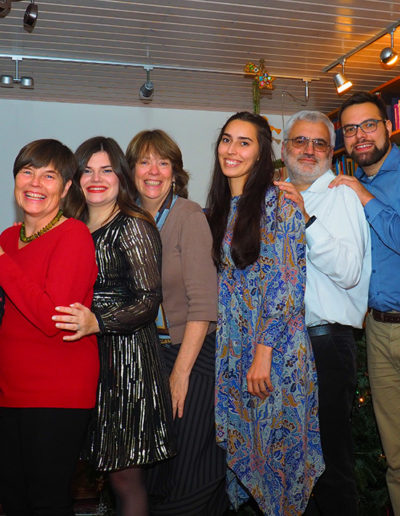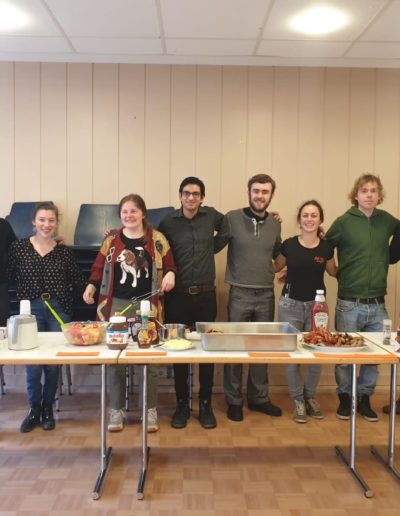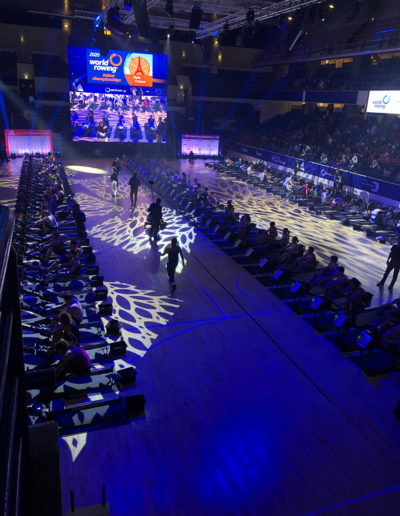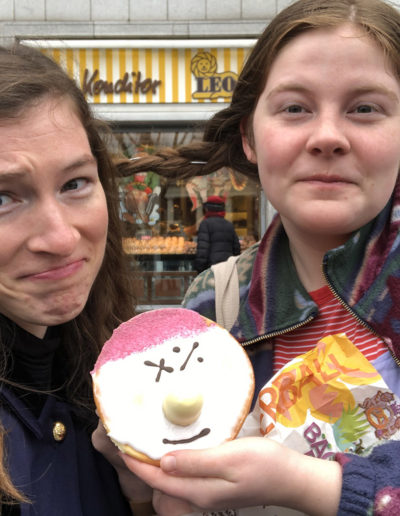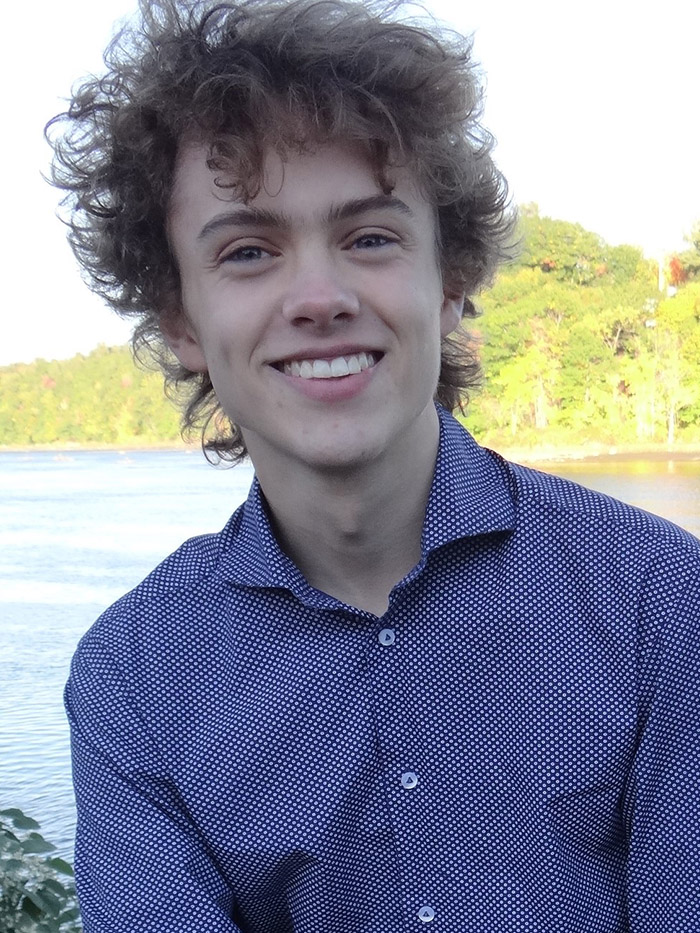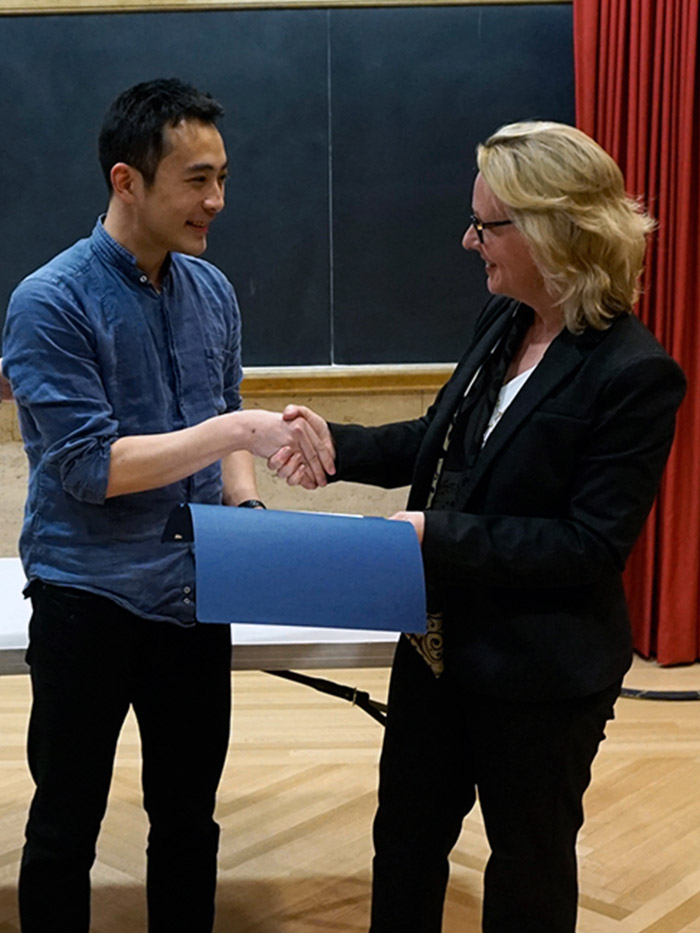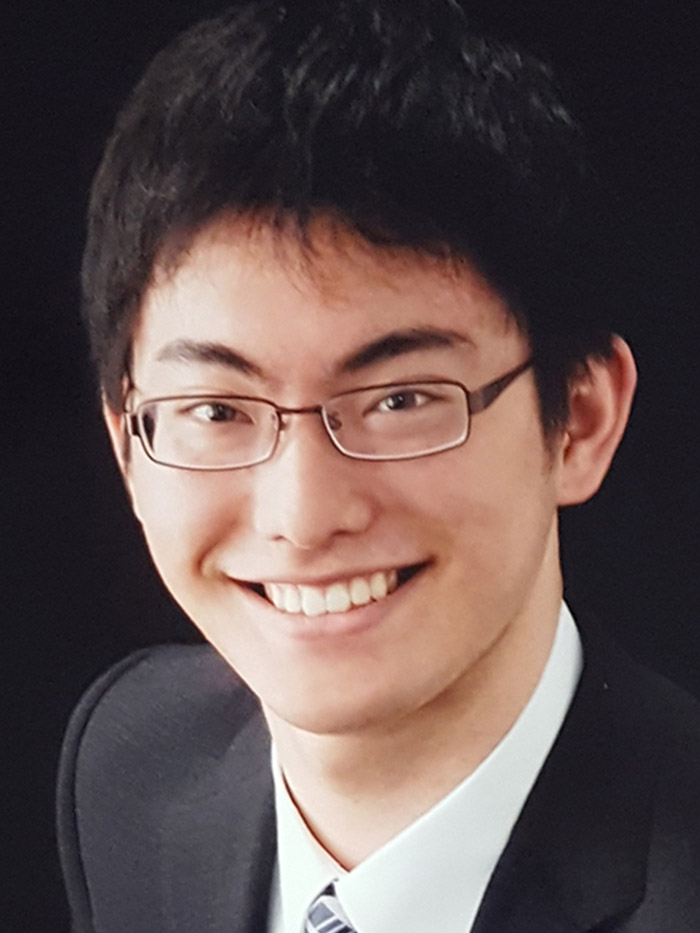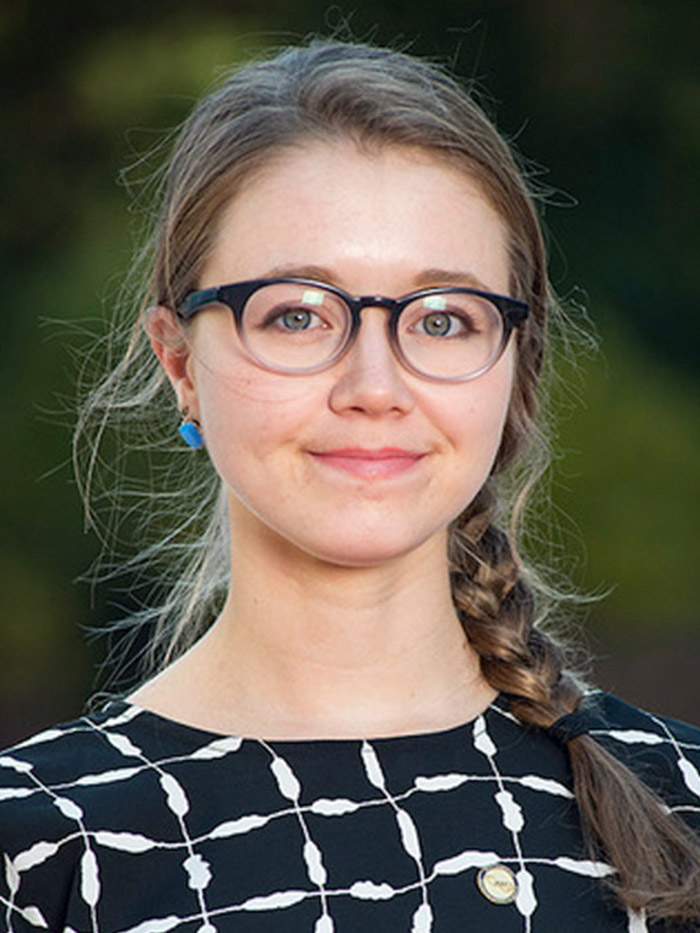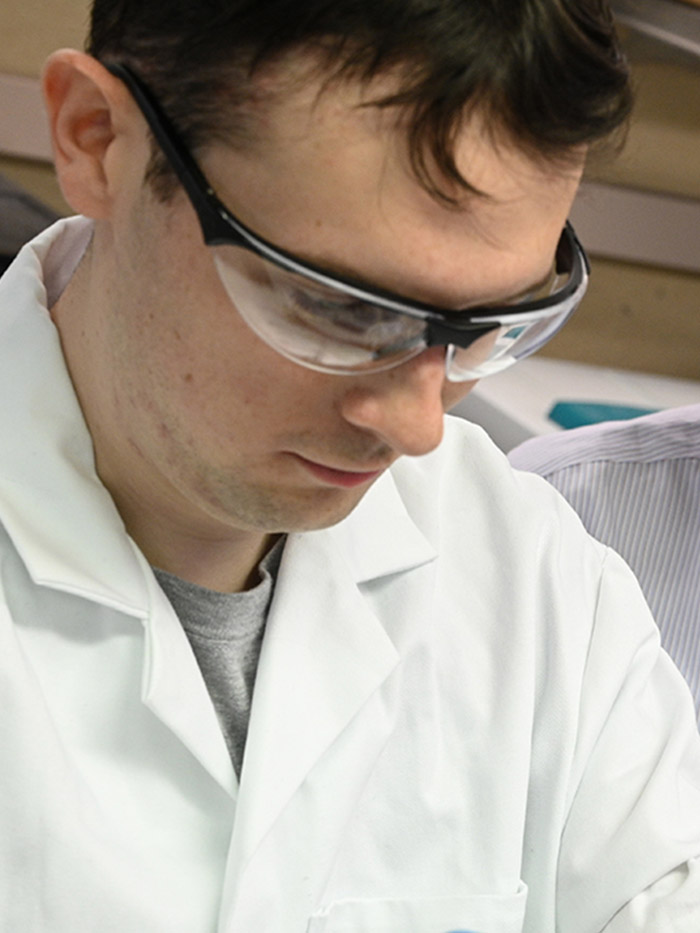
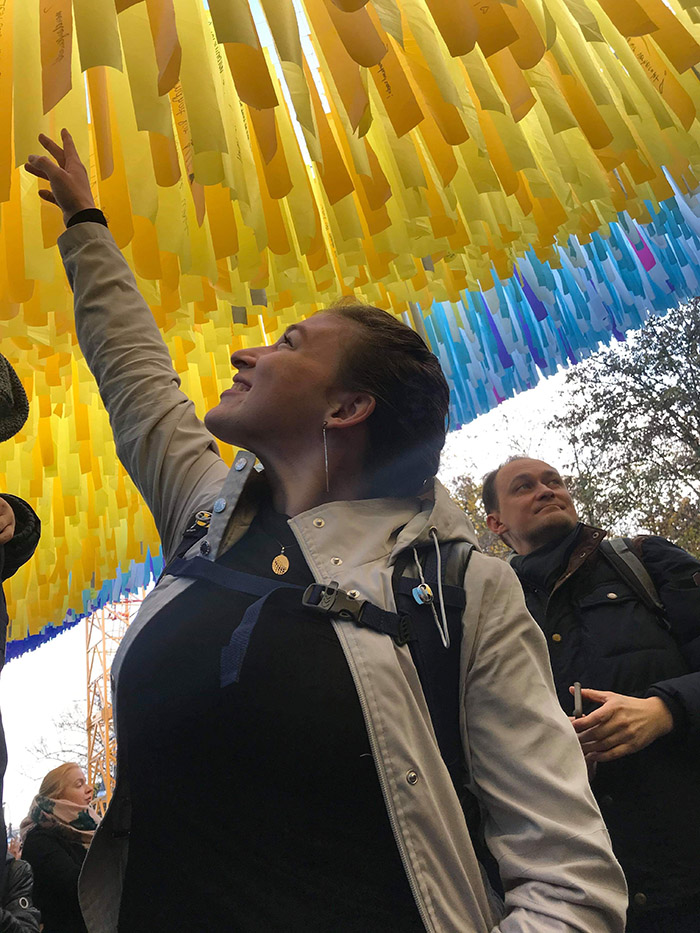
A Fulfilling Fulbright
2019 graduate Erin Kavanagh is conducting research on artificial lung devices in Germany as a Fulbright Scholar.
“I chose Germany because it is a pioneer in creating medical devices,” said Kavanagh, who is working at RWTH Aachen University’s Institute of Applied Medical Engineering in the lab of Jutta Arens.
Working with Arens, Kavanagh has designed experiments to help develop a test fluid that mimics the gas-exchanging duties of blood in the lungs. This fluid, made of perfluorocarbons, can be used as a substitute for blood in developing in-vitro artificial lung devices. “It’s exciting for me because I worked extensively with perfluorocarbons in Dr. Cook’s lab (at Carnegie Mellon) and can bring my background knowledge to the table.”
At CMU, Kavanagh spent three years in the lab of Professor of Biomedical Engineering Keith Cook, a collaborator of Arens. She worked on various aspects of artificial lung development, including building devices, rolling fiber bundles, potting and leak-testing finished devices and running in vivo test circuits. Using her strengths in biochemistry, she also helped develop a system for delivering antibiotics to the lower respiratory tract via perfluorocarbon emulsions.
Outside of her research, Kavanagh joined Aachen University’s rowing team and traveled to Paris for the World Indoor Rowing Competition, where she placed 13th in the 2000-meter women’s adaptive athlete race.
Kavanagh has also enjoyed traveling around Germany and connecting with other Fulbright scholars. She visited Berlin during the 30th anniversary of the fall of the Berlin Wall with a fellow Fulbrighter. Her most memorable moment, though, has been spending a traditional German Christmas with her host family outside of Munich.
“The Fulbright has been incredibly powerful in opening up the world to so many opportunities and people,” she said. In the future, Kavanagh plans to pursue an advanced degree related to the medical field.
Erin Kavanagh Gallery #01
Kavanagh met up with a fellow Fulbrighter to celebrate the 30th anniversary of the Fall of the Berlin Wall. The celebration had a beautiful art exhibit at the Brandenburg Gate that she visited.
Erin Kavanagh Gallery #02
Kavanagh met up with a fellow Fulbrighter to celebrate the 30th anniversary of the Fall of the Berlin Wall. The celebration had a beautiful art exhibit at the Brandenburg Gate that she visited.
Erin Kavanagh Gallery #03
Kavanagh visited over 10 different Christmas Markets but the Christmas Market in Aachen, her home town, was her favorite.
Erin Kavanagh Gallery #04
An American Thanksgiving in Germany. Kavanagh celebrated with her exchange student friends and floormates. There were people at the table from Mexico, Germany, Spain, Australia, Norway, India and of course the United States, Erin said.
Erin Kavanagh Gallery #06
During her Fulbright, Kavanagh has enjoyed traveling around Germany, which included a trip to Monschau, a small-town near the Belgian border that is known for its medieval looks — complete with half-timbered houses and cobblestone streets.
Erin Kavanagh Gallery #07
Frohes Weihnachten! Kavanagh enjoyed a traditional Germany Christmas with her stepmother and host family near München.
Erin Kavanagh Gallery #08
A group of American students in Aachen hosted a breakfast with eggs, bacon and pancakes.
Goldwater Scholar Success
William Fahy was named a 2019 Goldwater Scholar by the Barry Goldwater Scholarship and Excellence in Education Foundation. He was one of 496 recipients of the scholarship, which recognizes second- and third-year college students intending to pursue research careers in mathematics, engineering and the natural sciences.
Under Associate Professor of Chemistry and Mechanical Engineering Ryan Sullivan, Fahy has been researching how particles, specifically volcanic ash, can be changed in the upper atmosphere and how this could change the particles’ effects on the formation of ice. Volcanic eruptions can send large amounts of particulate matter into the air, Fahy noted, and these minerals can be exposed to a variety of conditions and chemicals in the atmosphere that could alter their properties. The resulting products of these interactions could have major effects on radiative forcing processes that drive climate change.
“The implications are enormous,” Fahy said. “We don’t really have a good understanding of this yet.” Using a specially designed reaction chamber in Sullivan’s lab, Fahy is able to expose volcanic ash to a variety of simulated conditions and precisely observe how it reacts.
This summer, Fahy participated in an International Summer Undergraduate Research Fellowship at the University of Leeds where he was excited to use a new instrument called a PINE chamber. “I got to work with one of the initial models and develop the first ever laboratory study on what could be a significant advancement in ice nucleation measurement techniques,” Fahy said. “I’m probably one of three people in the Americas who has ever seen one, let alone is proficient in operating and interpreting data from one.”
In the future, Fahy plans to attend graduate school and eventually teach and work on environmental research and policy.
Sipei Li Receives Graduate Student Research Award
Chemistry Ph.D. alumnus Sipei Li received the 2019 Guy C. Berry Graduate Student Research Award.
“I feel really humbled and honored,” said Li, who worked in the lab of J.C. Warner University Professor of the Natural Sciences Krzysztof Matyjaszewski. “I feel committed to do more research and science in the future.”
Li is currently a postdoctoral associate at MIT.
“He is the most creative and collaborative student I have had during my career at CMU,” Matyjaszewski wrote in nominating Li for the award.
Li’s early research at Carnegie Mellon focused on synthesizing functional polymers with controlled functionality and topology. He later branched out to the field of energy, where he invented a liquid-like lithium metal anode that has improved the lifespan of solid electrolytes. In his five years at Carnegie Mellon, Li published more than a dozen papers, many in high-impact journals.
Tatsuya Higaki Receives Award from the International Precious Metals Institute
Chemistry Ph.D. graduate Tatsuya Higaki received the 2019 Student Award from the International Precious Metals Institute for his work on gold nanoparticles. The $12,000 award was given at the institute’s annual conference in Nevada, where Higaki also presented on his research.
“The goal of my project will provide us with a protocol to enhance the functionality of gold nanoparticles, so that we can maximize the performance of metal nanomaterials using the smallest amount of resources,” Higaki said. “The completion of this project is expected to impact fields such as catalysis, energy conversion, chemical sensing and bio-medicine.”
Higaki, who worked in the lab of Chemistry Professor Rongchao Jin, focused on developing techniques to control the size and structure of gold nanoparticles using ligands, which are special ions or molecules that bond to metals. His previous research has shown that, contrary to decades of predictions, there is only a difference of 33 atoms between the metallic and nonmetallic states of gold nanoparticles. The research was featured prominently on the cover of the Journal of the American Chemical Society.
“Tatsuya has done stunning syntheses of gold nanoclusters with excellent control over size and structure. His work on the 279-atom gold nanocluster successfully mapped out the nonmetal to metal transition, which sheds light on a many-decades-long fundamental question,” Jin said of Higaki’s research. “Tatsuya also achieved structure control over nanoclusters, such as the attainment of an unprecedented hexagonal-close-packed Au30 nanocluster, which exhibited intriguing electronic properties.”
Zoe Wright Wins 2019 Kwolek Fellowship in Chemistry
Recent chemistry Ph.D. graduate Zoe Wright received the 2019 Kwolek Fellowship in Chemistry. The fellowship is funded by a bequest from Carnegie Mellon alumna Stephanie Kwolek, best known as the inventor of the synthetic fiber Kevlar. It provides up to $50,000 to women Ph.D. candidates who “have shown significant advances in their research.”
“My research in the Sydlik lab focused on synthesizing new methacrylate-based monomers to act as additives to existing medical adhesives,” Wright said. “Based on the type of drug we select for the adhesive and the release profile we choose via the covalent tether, we can design adhesives to actively guide wound healing.”
“From day one she showed a lot of maturity as a researcher,” Assistant Professor of Chemistry Stefanie Sydlik said of Wright. “It’s been a pleasure being her mentor.”
Beckman Scholars Program to Come to Carnegie Mellon
Exceptional undergraduate students in Carnegie Mellon’s Departments of Chemistry and Biological Sciences will have the opportunity to participate in a 15-month mentored research experience, learning from the university’s top researchers, as part of the Beckman Scholars Program Award.
Carnegie Mellon was one of 12 universities chosen this year by the Arnold and Mabel Beckman Foundation to host a Beckman Scholars Program.
The students will also receive mentoring from Carnegie Mellon alumni who are successful entrepreneurs. The entrepreneurship component will expose students to the business side of science and teach them how to present their work for funding and commercialization.
“Carnegie Mellon has long been a leader in undergraduate research. We find that what our students learn in the lab is more than just science. They learn about critical thinking and teamwork,” said Bruce Armitage, professor of chemistry. “Combining the research experience with exposure to entrepreneurship will uniquely prepare our Beckman Scholars for their future as 21st century scientists working in both academia and industry.”
One to three Scholars will be selected in each of the next three years. The Scholars will have the opportunity to choose a mentor from 15 distinguished members of the Carnegie Mellon faculty, whose research spans biological sciences, chemistry, computational biology and biomedical engineering. Beckman Scholars will receive $21,000 in funding for a stipend, supplies and travel over the course of the 15-month program.

